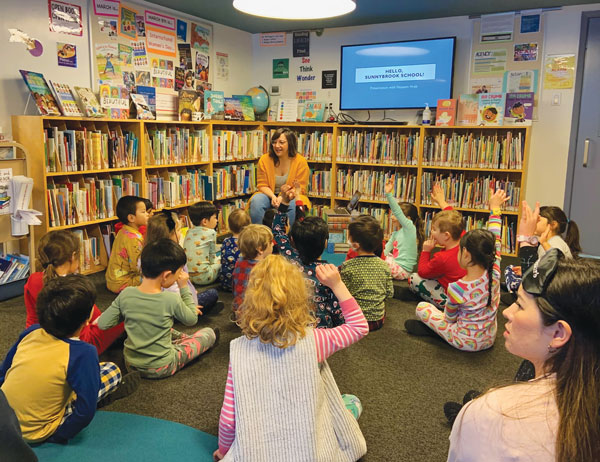When I was a kid, I would use up reams of paper writing what would have looked to an untrained eye like random squiggles—though to my five-year-old self, they were epic tales written in elegant cursive. I always dreamed of being an author, never a publisher. But I ended up working in publishing for many years before I got my first picture book deal.
Now, after nearly a decade working as a children’s author and two decades working in publishing—most of it at Kids Can Press, the publishing house that brought you Franklin the Turtle and Scaredy Squirrel—I’ve learned that no one understands these mysterious, underpaid, and idiosyncratic professions beyond the glorified versions featured in romantic comedies.
When people hear I’m an author, it seems like they think stories just fall from my fingers onto the page, ready to be acquired and celebrated. I say this because nearly everyone I meet also has a children’s book idea. Few people realize how much work it takes to tell a 500-word story well, let alone one that will sell a commendable 6,000 copies and earn a Goodreads review that includes the word “wut?” (Yes, this happened to me.)
As for being a children’s publisher, many people think it’s a “cute” job. They don’t realize that children’s publishing professionals juggle a never-ending to-do list. From the impact of geopolitics on printing and distribution to keeping staff, agents, authors, and illustrators happy and working, the challenges are endless. Then there’s figuring out what to do with those 10,000 copies of that book everyone absolutely believed in but no one bought. Every day brings a new fire to be put out. Also, oh God, how can a fire be on fire?
Publishers and authors often fail to acknowledge among themselves how little they understand about the complex and infinitely fascinating business of publishing. I see it every day: from authors and agents who propose deals that aren’t financially viable, to authors harboring unrealistic expectations about the sales and marketing potential of their books, to publishers and editors promising authors meteoric rises—which is beyond anyone’s control. There’s a huge disconnect between the realities of publishing and the aspirations of, well, everyone. I know because I’ve hoped for the same impossible things that you’ve hoped for, both as an author and as a publisher.
We all want to believe that publishing is a meritocracy and that good books and robust marketing budgets matter. However, we’ve all seen time and time again that the books that receive the most support can fail and that the little, unassuming engines-that-could might be the most successful. We also see books that win big prizes, get coverage in the New York Times Book Review and the Wall Street Journal, get backed by indie booksellers, and still go on to sell no more than 3,000 copies. Publishing is mostly baffling and unpredictable.
So why are some books more successful than others? Well, taste and timing. Taste is the most impossible thing to quantify, and timing is fickle. Taste mostly doesn’t care about advertising, e-blasts, author tours, or even originality. We want to believe that when given the option, people will choose what is deserving and meaningful, but if my undying love for soggy french fries with extra ketchup has taught me anything, it’s that that just isn’t true. We can never predict what readers are looking for until they let us know they’ve found it.
And as for timing? Who among us can predict what we’re about to crave next, let alone in two years? And let’s be honest—for me, it will probably still be soggy french fries.
You may be thinking that I seem jaded, wary, and like I’m trying too hard to temper expectations. You may be thinking, “She’s wrong. She doesn’t know what she’s talking about.” I get it. But think of me as the nice stranger who will tell you that you have toilet paper stuck to the bottom of your shoe. I’m telling you what you need to know, not what you want to hear.
While your book is the world to you, to the world it might be just another book. That realization is not just depressing to you, it’s also depressing to the authors, agents, and publishing professionals who are working so hard behind the scenes on your book. But I still believe in unicorns and glitter. And I really do believe in hope—I wouldn’t be both a children’s author and publisher if I didn’t.
Naseem Hrab was named publisher at Kids Can Press in May. She is also the author of several children’s books, including The Sour Cherry Tree, which won a 2022 Governor General’s Literary Award.
A version of this article appeared in the 09/30/2024 issue of Publishers Weekly under the headline: Unicorns and Glitter
